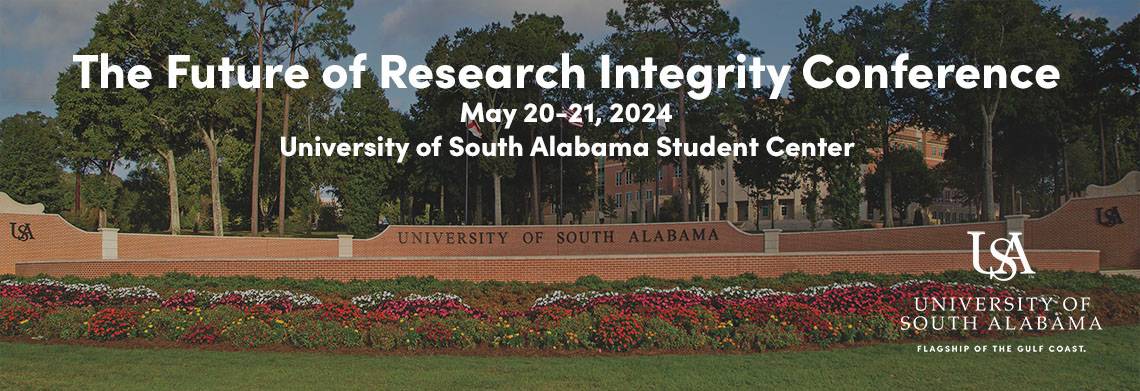
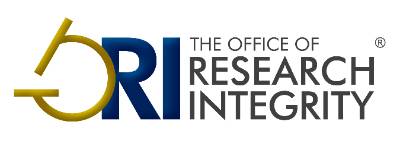
This conference is supported through the US Office of Research Integrity (ORI), Department of Health and Human Services Conference Grant: ORI IR230076-01-00
Lynne Chronister, Vice President for Research and Economic Development, University of South Alabama
President Joe Bonner, University President, University of South Alabama
Dusty Layton, Executive Director, Office of Research Compliance and Assurance
Framework to support research integrity: integrity: Focus on publication ethics, FAIR Data and Artificial Intelligence Interface
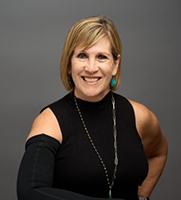
Sheila Garrity, JD., MPH, MBA
Director, Department of Health and Human Services, Office of Research Integrity
Before coming to ORI, Ms. Garrity served as Associate Vice President of Research Integrity at George Washington University (GW) from 2014 to 2023 where she oversaw operations of the Office of Laboratory and Radiation Safety, Office of Human Research, Office of Animal Research, Office of Research Integrity and Regulatory Affairs and served as the institutional Research Integrity Officer (RIO). At GW Garrity was responsible for policy development, informational sessions, and development of educational modules to assist investigators with understanding their ethical and fiduciary responsibilities regarding their research.
Prior to that, Ms. Garrity spent more than 20 years at Johns Hopkins University School of Medicine where she served as the director of the Division of Research Integrity and Research Integrity Officer (RIO). She is a founding member and first president of the Association for Research Integrity Officers (ARIO, founded 2013). Ms. Garrity was in the first group of teaching RIOs when ORI launched its first series of RIO Bootcamps in the early 2000’s.
Ms. Garrity earned her JD from the University of Maryland School of Law and her MBA and MPH at Johns Hopkins where she also received a certificate in Health and Human Rights.
Take a break and check out our exhibitors.

Joerg Heber, Ph.D.
Research Integrity Officer, Lawrence Berkeley National Laboratory.
Previous positions held include editorial director at Public Library of Science (PLOS) and editor-in-chief at PLOS ONE; executive editor of Nature Communications
Joerg Heber is the Research Integrity Officer at Lawrence Berkeley National Laboratory and head of its Research Compliance Office. He oversees the research integrity, research security, export control, and conflicts of commitment and conflicts of interest programs at the Lab.
Joerg has a PhD in physics from Imperial College London, UK. Following postdoc positions
at Bell Labs, NJ, and the University of Marburg, Germany, Joerg joined Springer Nature
in 2005 as a manuscript editor at the journal Nature Materials. In 2015 Joerg became
the Executive Editor of the journal Nature Communications. He was appointed Editor-in-Chief of PLOS ONE in
2016 and subsequently became PLOS’ Editorial Director. Joerg joined Berkeley Lab in
2020.

Ann Gabriel, Senior Vice President
Global Strategic Networks Elsevier Publishing
Anne Gabriel has held a variety of positions at the forefront of scholarly communication,
most recently as
Elsevier’s Publishing Director for journals in Computer Science and Engineering, as
well as electronic product development roles with Elsevier’s ScienceDirect platform.
Her current work focuses on outreach and partnerships related to scientific impact;
open science;
sustainability; and diversity and inclusion. She was previously at Cambridge University
Press. She is a member of the AAP PSP Executive Committee. Ann holds a master’s degree
in communications from the University of Pennsylvania.

Kaia Motter, Head of Academic Affairs, North America, Springer Nature Publishing
Ms. Motter leads academic affairs in the US and Canada, building relationships and collaborating with funders, institutions, and other non-profit organizations in the region. She joins Springer Nature from Wiley where she was involved in open research policy and outreach, research assessment reform, and various open science and open metadata initiatives.
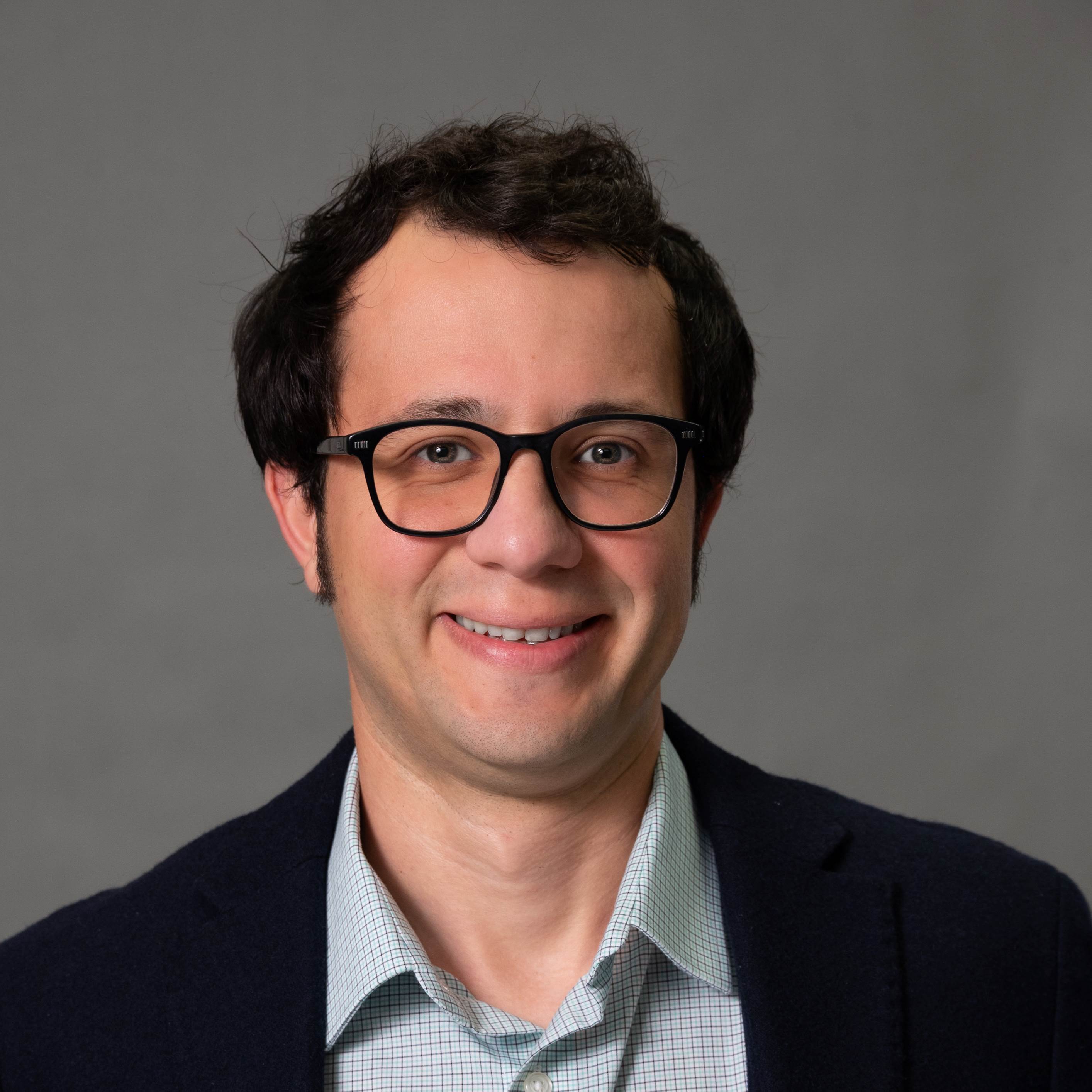
Mohammad Hosseini, PhD., is an assistant professor at the Northwestern University
Department of Preventive Medicine (Chicago, USA). He collaborates with the Northwestern
University Clinical and Translational Sciences Institute and the Institute for Artificial
Intelligence
in Medicine. Dr. Hosseini is a guest lecturer of research ethics and integrity, an
associate editor of the journal of Accountability in Research and a member of the
Global Young Academy.

Moderator:
Deepkia Bhatia
Associate Vice President for Research, Compliance and Regulatory Affairs, Emory University.
Fostering research integrity amidst rapid technological changes: Implications for the way science is supported, practiced, conducted and communicated.
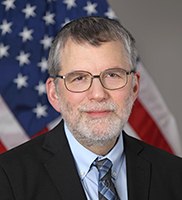
Michael Lauer, M.D.
Deputy Director for Extramural Research, National Institute of Health
Michael S. Lauer, M.D., is the Deputy Director for Extramural Research at the National Institutes of Health (NIH), where he serves as the principal scientific leader and advisor to the Director of the NIH on all matters relating to the substance, quality, and effectiveness of the NIH extramural research program and administration. He spent 14 years at Cleveland Clinic as Professor of Medicine, Epidemiology, and Biostatistics. During his tenure at the Clinic, he led a federally funded internationally renowned clinical epidemiology program that applied big data from large-scale electronic health platforms to questions regarding the diagnosis and management of cardiovascular disease. From 2007 to 2015 he served as a Division Director at the National Heart, Lung, and Blood Institute (NHLBI), where promoted efforts to leverage big data infrastructure to enable high-efficiency population and clinical research and efforts to adopt a research funding culture that reflected data-driven policy. He has received numerous awards including the NIH Equal Employment Opportunity Award of the Year and the Arthur S. Fleming Award for Exceptional Federal Service in recognition of his efforts to grow a culture of learning and accountability.
 Kirstin Morningstar, MBA, CIP, CPIA
Kirstin Morningstar, MBA, CIP, CPIA
Senior Director, Office of Regulatory Affairs, University of Texas at Arlington
Kirstin Morningstar serves as the Senior Director of Regulatory Services at the University of Texas at Arlington (UTA). Kirstin received a B.S. in Biomedical Science from Texas A&M University, and an MBA from UTA. She has 20+ years of experience in research compliance and holds CIP certification in IRB administration, and CPIA certification in IACUC administration. She also serves on the Board of Directors for the Texas Society for Biomedical Research (TSBR). Her office is responsible for oversight and coordination of programs for the IRB, IACUC, IBC, research conflicts of interest, export control, research misconduct, foreign influence, and responsible conduct of research.
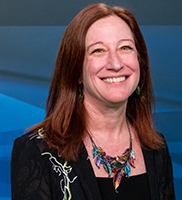 Rebecca Keiser, Ph.D.
Rebecca Keiser, Ph.D.
Chief of Research Security Strategy and Policy, National Science Foundation
Rebecca Spyke Keiser is the Chief of Research Security Strategy and Policy (CRSSP)
at the National Science
Foundation (NSF). Keiser is the first CRSSP, a position established in March 2020
to ensure the security of federally funded research while maintaining open international
collaboration. In this role, Keiser provides the NSF director with policy advice on
all aspects of research security strategy. She also leads NSF’s efforts to develop
and implement efforts to improve research security and the agency’s coordination with
other federal agencies and the White House.
Until March 2020, Keiser was the head of the Office of International Science & Engineering (OISE) at NSF. Keiser had served as head of OISE since coming to NSF in 2015. The office promotes an integrated, international strategy and manages internally focused programs that are innovative, catalytic and responsive to a broad range of NSF and national interests.
Prior to NSF, she was a special advisor to the National Aeronautics and Space Administration (NASA) administrator and an executive-in-residence at American University. She held several positions with NASA, including associate deputy administrator for strategy and policy, associate deputy administrator for policy integration, and executive officer to the deputy administrator.
Keiser also served as assistant to the director for international relations at the White House Office of Science and Technology Policy, where she provided policy guidance to the president's science advisor. Her experience covers science and technology policy, agreements and other cooperative efforts. She is a board member of Women in Aerospace and a member of the American Academy for the Advancement of Science. She has a bachelors degree in Japanese studies from Wellesley College; a masters degree in politics of the world economy from the London School of Economics; and a doctorate in international studies from the University of South Carolina. She speaks Japanese and Spanish.
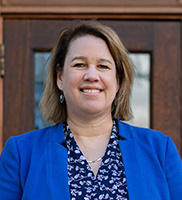 Susan Martinis
Susan Martinis
Vice Chancellor for Research and Innovation, University of Illinois Urbana-Champaign
Susan Martinis, Ph.D, is Vice Chancellor for Research and Innovation at the University
of Illinois at Urbana-Champaign, where she provides leadership for the campus-wide
interdisciplinary research
institutes, promotes new research initiatives, and oversees the administrative and
business processes
that ensure the safe, ethical, and productive conduct of research at Illinois. Martinis,
the Stephen G. Sligar Professor of Molecular and Cellular Biology, studies the mechanisms,
evolution, and biomedical applications of protein synthesis and RNA-protein interactions.
She is a successful researcher, engaged in entrepreneurial and corporate partnerships,
a committed educator, and an experienced administrator.
She earned her B.S. from Washington State University (1985) and Ph.D. at the University
of Illinois (1990). She then trained at the Massachusetts Institute of Technology
as an American Cancer Society Postdoctoral Fellow. She was hired in 1993 at a start-up
biotechnology company, Cubist
Pharmaceuticals, where she was awarded the company’s first U.S. patent and National
Institutes of Health SBIR grant, before moving to academia at the University of Houston
in 1997.
Martinis contributed significantly to the founding of the Carle-Illinois College of
Medicine, which offers a paradigm-shifting approach to teaching medicine that is engineering-based.
She served as the Interim Director of Biomedical Sciences and Engineering on the
Dean’s inaugural leadership team. Dr. Martinis was elected to the Executive Committee
of the Association for Public and Land-grant Universities Council on Research and
has served as President of the Association of Medical and Graduate Departments of
Biochemistry across North and Central America. She has served as an inaugural member
of the National Institutes of Health Molecular Genetics A study section, as well as
participated in Review Panels for the National Science Foundation, and was an Editorial
Board Member of the Journal of
Biological Chemistry for five years.
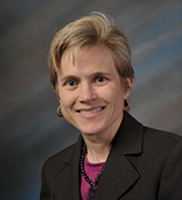 Kris West, JD, MS,
Kris West, JD, MS,
Director, Research Compliance and Ethics, Council on Governmental Relations (COGR)
Kris West, J.D., M.S., is the Director for Research Compliance and Ethics at the Council on Governmental Relations (COGR). COGR is an association of research-intensive universities, colleges, independent research institutions, and health care institutions that supports its members in the areas of research administration, compliance, financial oversight, and intellectual property. As a member of COGR’s staff she provides information, regulatory analysis, policy perspective and advice to COGR’s members.
Prior to joining COGR, Ms. West worked for Emory University for many years, first
as Senior Associate General Counsel and later as Chief Compliance Officer. At Emory
she provided compliance guidance and oversight for research and non-research areas.
She also served as Emory University's Privacy Officer and
Research Integrity Officer.
Ms. West is an active member of the Georgia Bar. She attended the University of Maryland and Mercer University School of Law and also holds a M.S. degree in drug regulatory affairs from the University of Florida.
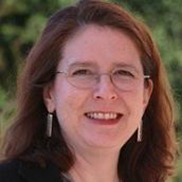 Moderator:
Moderator:
Robin Broussard, Ph.D., ECoP®,
Director, Office of Research Integrity, University of Louisiana at Lafayette
![]()
Join us for the Networking Reception following the Session 2 Panel Discussions and closing remarks. The reception is sponsored by KHARON, who is helping leading organizations identify a wide range of sanctions and compliance risks, critical to managing financial crimes, supply chain exposure, export controls, investment risk, and more.
The reception will take place in the MacQueen Alumni Center, just a very short walk from the USA Student Center.
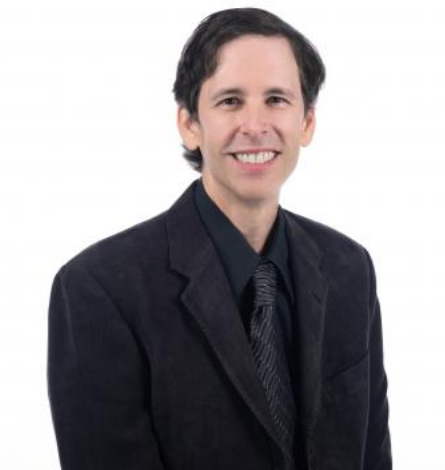 Introduction to the Ethical and Responsible Research Program (ER2) at the National
Science Foundation
Introduction to the Ethical and Responsible Research Program (ER2) at the National
Science Foundation
Jason Borenstein, Ph.D., Program Director, National Science Foundation
Jason Borenstein, Ph.D. is a Program Director within the U.S. National Science Foundation’s Directorate for Social, Behavioral and Economic Sciences. His primary responsibility is managing the Ethical and Responsible Research (ER2) Program. His duties include coordinating the merit review process for grant proposals submitted to the ER2 Program and administering awards. Dr. Borenstein’s research interests include robot & artificial intelligence ethics, engineering ethics, research ethics, and bioethics.
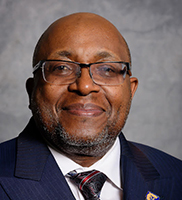 Safeguarding and embracing change in research practices: Cultivating and sustaining
an ethical research environment
Safeguarding and embracing change in research practices: Cultivating and sustaining
an ethical research environment
Willie May Ph.D., Vice President for Research and Economic Development, Morgan State University. American Association for the Advancement of Science (AAAS) President-elect
Dr. Willie E. May currently serves as Vice President for Research and Economic Development at Morgan State University where he has been working aggressively to increase the quality and quantity research outputs, facilitate increased entrepreneurship and tech transfer, and to better connect research across Maryland’s Preeminent Public Urban Research University to community needs. He previously served as the Senate-Confirmed Under Secretary of Commerce for Standards and Technology. In this role Dr. May provided high-level oversight and day-to-day leadership for the National Institute for Standards and Technology (NIST), in promoting U.S. innovation and industrial competitiveness by advancing measurement science, standards, and technology in ways that enhance economic security and improve our quality of life, and the National Technical Information Service (NTIS) in providing innovative data services to federal agencies, through joint venture partnerships with the private sector, to advance federal data priorities, promote economic growth, and enable operational excellence. He began his career as a bench Chemist at NIST/NBS and went on to work at every management level within the organization. His personal research activities were focused in the areas of trace organic analytical chemistry and determination of physico-chemical properties of organic compounds, where his work is described in more than 100 peer-reviewed technical publications. During his career, Dr. May has given more than 250 invited lectures at conferences and symposia around the world.
Dr. May currently serves as President-Elect of the American Association for the Advancement of Science, a member of the Board of Directors for Consumer Reports, and on the NASA Advisory Council’s Science Committee. Until recently he maintained several international leadership responsibilities as well, including but not limited to serving as: Vice President of the International Committee on Weights and Measures (CIPM); President of the CIPM’s Consultative Committee on Metrology in Chemistry and Biology; a member of the Scientific Advisory Board’s for the UK's National Physical Laboratory (NPL); and a member of China’s National Institute of Metrology (NIM).
Dr. May earned his B.S in Chemistry from Knoxville College and his Ph.D. in Analytical Chemistry from the University of Maryland, College Park. His numerous honors and awards include: Honorary Doctorates from Wake Forrest University and the University of Alabama Huntsville; the American Chemical Society’s Distinguished Service in the Advancement of Analytical Chemistry Award; the American Chemical Society’s Public Service Award; the Department of Commerce’s Gold, Silver and Bronze Medal Awards; the National Institute of Standards and Technology’s Equal Employment Opportunity (EEO) Award; and the National Organization for the Professional Advancement of Black Chemists and Chemical Engineers’ Percy Julian Award. In 2015, he was recognized as the Federal Government’s “Top Chemist” by Chemical and Engineering News Magazine, and in 2016, as the Federal Laboratory Consortium’s “Laboratory Director of the Year.” Dr. May is a Fellow of both the American Chemical Society and the American Association for the Advancement of Science.
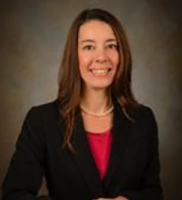 Tracy Arwood, MS,
Tracy Arwood, MS,
Chief Ethics and Compliance Officer & Associate Vice President, Clemson University
Tracy Arwood, MS, is currently the Associate Vice President and Chief Ethics & Compliance Officer at Clemson University. In this role, she manages an enterprise-wide compliance and ethics program that provides guidance and oversight with respect to the vast range of legal requirements affecting institutions of higher learning.
Formerly, she was the Assistant Vice President for Research at Clemson University. In that role, she managed the operations of the Office of Research Compliance, to include the IRB (Human Subjects), IBC (Biosafety/rDNA) and IACUC (Animal), and the Office of Research Safety (Lab Safety, Chemical Safety, Biosafety, Radiological Safety and Hazardous Waste Management). As the University's Research Integrity Officer, Ms. Arwood also provided oversight for the handling of research misconduct allegations and the Responsible Conduct of Research (RCR) training program.
Previously, Ms. Arwood was the Director of Regulatory Compliance at Mississippi State
University (MSU). While at MSU, she also served as the prisoner representative on
the MSU IRB based on her experience as
an Ombudsman within the Virginia Department of Corrections.
Ms. Arwood is a regular presenter at a national meetings of organizations like National Association of College and University Attorneys (NACUA), Society of Corporate Compliance and Ethics (SCCE), University Risk Managers and Insurance Association (URMIA), Public Responsibility in Medicine and Research's (PRIMR) and National Council of University Research Administrators’ (NCURA). She is also the co-author of various Collaborative Institutional Training Initiative (CITI) social and behavioral science modules. Ms. Arwood holds a BS and a MS in Criminal Justice from Radford University in Virginia and is a certified paralegal.
 Etta Ward
Etta Ward
Senior Director of Faculty Mentoring and Leadership
Indiana University Indianapolis
Etta Ward is the Senior Director of Faculty Mentoring and Leadership at Indiana University
in Indianapolis (IUPUI). As a National Research Mentoring Network certified facilitator
for mentor training and recently
designated Center for the Improvement of Mentored Experiences in Research Principal
Facilitator, Ward has built a body of work around effective mentorship—especially, targeting minoritized
populations. She promotes competency-based and culturally aware mentoring strategies that bolster inclusive
mentoring cultures. Ward views this work as her professional calling, with potential
to impact mentoring generations into the future.
Ward leads many diversity and inclusion programs focused on ways to bring people safely
to and help sustain conversations on race and inclusive excellence. She has designed
programming that helps leaders
develop tactics that foster inclusive engage, identify and leverage privilege for
inclusion, shape inclusive climates where all are valued and feel a sense of belonging,
and create a culture of effective mentorship across differences.
Ward is the recipient of several awards, to name a few, Fulbright Scholar Award to France with the Council for International Exchange for Scholars, APLU Council on Research Advancing Diversity and Inclusion in University Research Award, the IUPUI Multicultural Staff Impact Award, the IU Martin Luther King Jr. Building Bridges Award, and the United Way Diversity Advocate Award.
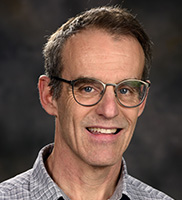
David Resnick, J.D., Ph.D.,
Bioethicist, National Institute of Environmental Health Sciences, National Institutes
of Health
David Resnick, JD, Ph.D., CIP, is a bioethicist at the National Institute of Environmental
health Science, National Institutes of Health. He earned his B.A. in philosophy from
Davidson College, his M.A. and Ph.D. from the University of North Carolina at Chapel
Hill, and his J.D. from Concord University School of Law. Dr. Resnick was an Associate
and Full Professor of Medical Humanities at the Brody School of Medicine at East Carolina
University (ECU) from 1998-2004, and an Associate Director of the Bioethics Center
at ECU and University Health Systems from 1998-2004. Dr. Resnick was Assistant and
Associate Professor of Philosophy at the University of Wyoming (UW) from 1990-1998,
and Director of the Center for the Advancement of Ethics at UW from 1995-1998.
Dr. Resnick has published over 250 peer reviewed articles and 10 books on various topics in philosophy and bioethics and is a Fellow of the American Association for the Advancement of Science. He serves on several editorial boards and is an Associate Editor of the journal Accountability in Research. Dr. Resnick was Chair of the NIEHS Institutional Review Board (IRB) from 2008-2019 and is a Certified IRB Professional.
 John Thomas Jr., Attorney, Hafemann, Magee, & Thomas
John Thomas Jr., Attorney, Hafemann, Magee, & Thomas
John Thomas, Jr., JD, a partner at Hafemann Magee & Thomas, LLC, is a national leader in False Claims Act litigation, where whistleblowers uncover and report fraud against the government. John litigates cases throughout the country involving procurement fraud, health care fraud, medical device fraud, and grant fraud. John is the founder and former Chair of the Federal Bar Association Qui Tam Section and a frequent writer and speaker on FCA topics.
John is also an experienced litigator in the criminal arena. He has served as both a prosecutor and defense counsel in a variety of federal and state actions, including contested trials involving financial crimes, government fraud, attempted murder, war crimes, complex classified litigation matters, crimes against children, drug offenses, firearms offenses, and theft of government property.
John has a special interest in science policy and research administration issues, and represents clients in a variety of research and science policy matters and other issues involving academic institutions. He is a contributor to Retraction Watch and has published in The Scientist and other science media. He advises researchers and academics in research administration issues.
Early Registration (through February 29, 2024)
Conference attendee - $99
Group Registration
Call (251) 460-7200
M - F, 8:00 am - 5:00 pm
Registration (March 1 - April 30, 2024)
Conference attendee - $149
Discount Available for USA employees
Call (251) 460-7200
M - F, 8:00 am - 5:00 pm
USACCE will invoice USA departments and payment should be made via internal transfer.
For assistance
Contact the USA Center for Continuing Education (CCE)
By phone: (251) 460-7200
Via email: usacontinuinged@southalabama.edu
Cancellation Policy:
No refunds will be given after May 1, 2024. Substitutions are permitted prior to May
15, 2024. Refunds processed prior to May 1, 2024, will be the registration fee minus
any applicable processing fees.
AUDIENCE
The conference will target research integrity leaders, research compliance and security professionals, research administrators, institutional officials, researchers, graduate students, and postdoctoral scholars across the region.
OBJECTIVES
The primary objectives are:
Hotel within walking distance
Holiday Inn Express (Full)
Hotels less than two miles from campus